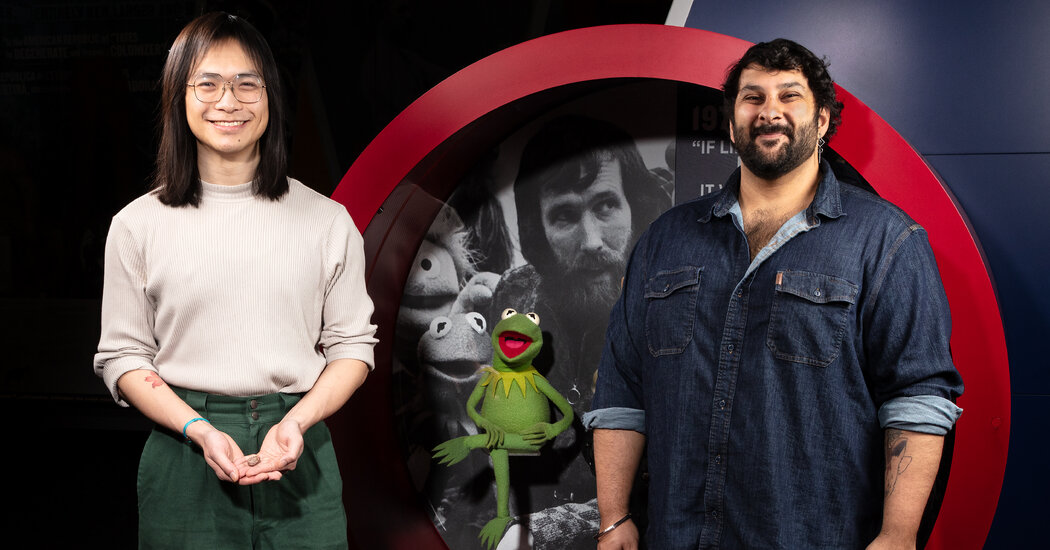The species seemed to have bug eyes and a smile, so a team of researchers named it Kermitops gratus in honor of the banjo-playing Muppet.
One crawled across the rain-drenched ground of what is now Texas more than 270 million years ago, possibly feasting on fast-moving insects. The other endeared himself to millions as the banjo-playing roving newscaster, and reluctant beau of Miss Piggy, known as Kermit the Frog.
Now, they share a name.
On Thursday, scientists announced that they had named a newly identified ancient ancestor of modern-day amphibians Kermitops gratus in honor of Kermit the Frog.
Although it couldn’t sing “Rainbow Connection” or deliver the news, the salamander-like species seemed to bear a striking resemblance to the beloved Muppet, said Calvin So, a Ph.D. student in the department of biological sciences at George Washington University, who helped name it.
The combination of bones in the eye socket gave it a “bug-eyed appearance” like Kermit’s, and its slightly crushed, three-centimer-long fossilized skull appeared to have “a lopsided smile,” reminiscent of Kermit’s shy grin, Mx. So said.
“It really made it look to us that Kermit was smiling at us,” said Mx. So, the lead author of a paper describing the new species, which was published on Thursday in the Zoological Journal of the Linnean Society. The name combines “Kermit” and the Greek suffix “-ops,” which means face.
The fossilized skull was unearthed near Lake Kemp in Texas in 1984, Mx. So said. It was sitting in the collections of the Smithsonian National Museum of Natural History in Washington until 2021, when one of Mx. So’s co-authors, Arjan Mann, and a few other paleontologists noticed it and recognized that it might be a new species, Mx. So said.
